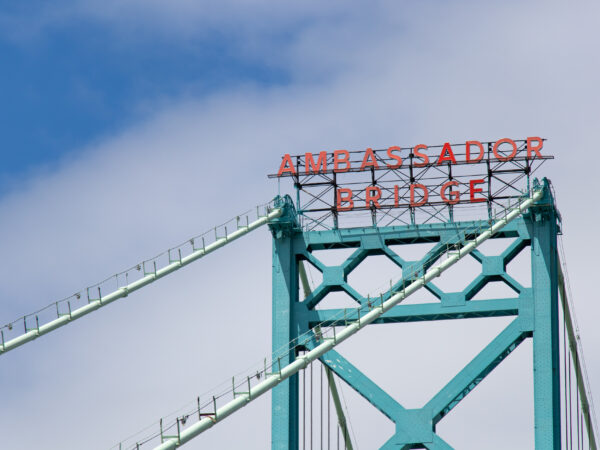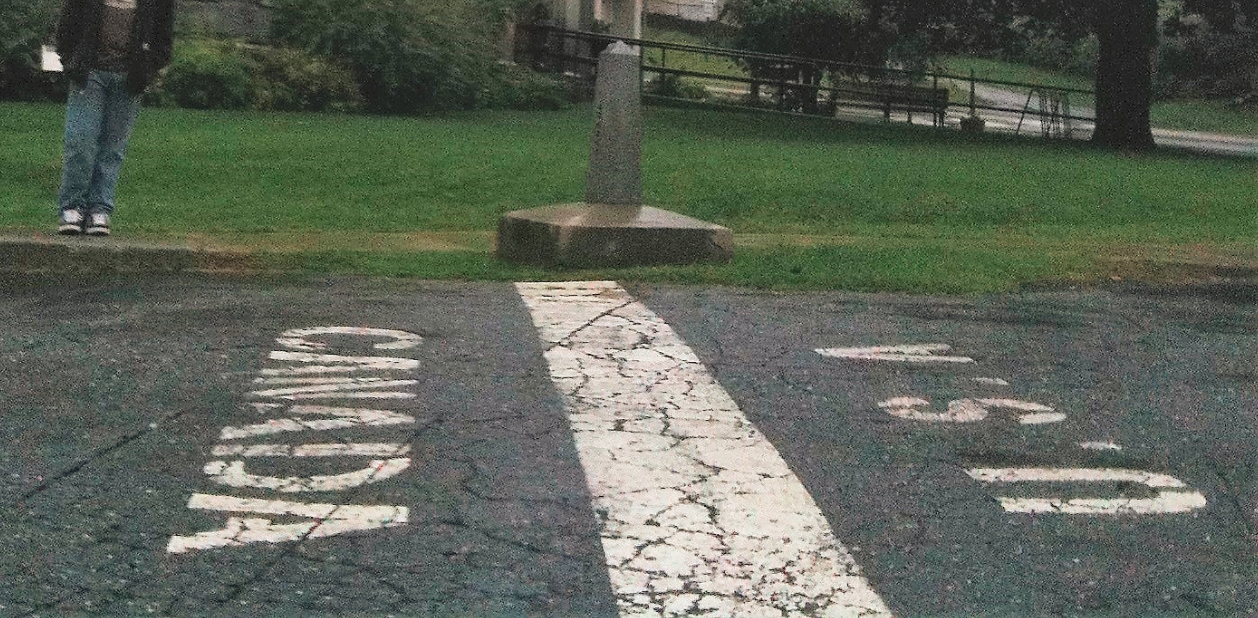
“Reject rhetoric, stand united” to protect the Great Lakes
“The mayors of the Great Lakes and St. Lawrence region are the keepers of the flame of our special cross-border relationship,” said Paul Dyster, mayor of Niagra Falls, New York, and recent past president of the Great Lakes and St. Lawrence Cities Initiative.
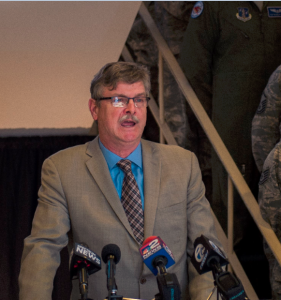
Paul Dyster, mayor of Niagara Falls, Photo by Staff Sgt. Ryan Campbell via af.mil
Dyster joined other mayors who took the podium at a news conference at the Great Lakes and St. Lawrence Cities Initiative annual conference in Ajax, Ontario last week to caution against what they called “isolationist” policies towards trade and environmental protection.
The Great Lakes and St. Lawrence Cities Initiative is binational coalition. It consists of 131 U.S. and Canadian mayors and local officials working to advance the protection and restoration of the Great Lakes and St. Lawrence River.
The conference came on the heels of the announcement of punitive tariffs, fiery words and rancor involving trade between the U.S. and Canada.
The trade troubles between the two countries began after The Group of Seven Summit on June 8th and 9th in Quebec. Canadian Prime Minister Justin Trudeau expressed anger that tariffs had been placed on Canadian steel and aluminum – which the Trump administration said was due to “national security concerns.”
“We will not be pushed around”
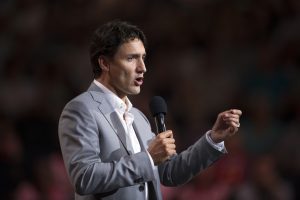
Prime Minister Justin Trudeau, Photo by EJ Hersom DoD News via flickr.com cc 2.0
Trudeau said, “It would be with regret but it would be with absolute certainty and firmness that we move forward with retaliatory measures on July 1st applying equivalent tariffs to the ones that the Americans have unjustly applied to us. I have made it very clear to the President that it is not something we relish doing but something that we will do. Because Canadians are polite, we’re reasonable, but we will not be pushed around.” He also called the tariffs “insulting.”
After hearing Trudeau’s statements, Trump said his Canadian counterpart was “dishonest and weak.”
The U.S. also placed duties on Canadian softwood lumber. And Trump continues to complain that dairy imports are harming U.S. markets.
Canada now says it will place a “dollar-for-dollar” tariff on U.S. steel, aluminum, and whiskies. Many of these goods travel back and forth across the Great Lakes between the two countries.
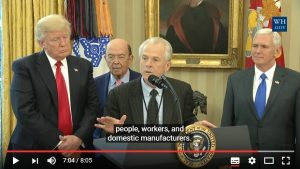
Peter Navarro, Director of the White House National Trade Council, Photo by whitehouse.gov
To make matters worse, White House trade advisor Peter Navarro said on national T.V. that there was “a special place in hell” for Prime Minister Trudeau. And then President Trump’s economic advisor Larry Kudlow said Canada had “kind of stabbed (the U.S.) in the back.”
At last week’s Great Lakes and St. Lawrence Cities Initiative in Ajax, Ontario, Niagra Falls mayor Paul Dyster said, “American mayors of the Cities initiative stand shoulder to shoulder with our Canadian cousins in the face of escalating rhetoric that threatens to damage 200 years of peace and economic prosperity in the region.”
Incoming Cities Initiative Chair Sandra Cooper, Mayor of Collingwood, Ontario said, “As mayors in the Great Lakes St. Lawrence Region, we represent a community of common interest, dedicated to the protection of our shared waters and our integrated economic prosperity.”
If the Great Lakes and St. Lawrence region were a country, it would be the world’s third largest economy. It holds 20% of the world’s fresh water.
“We are mayors without borders”
The mayors say due to the integrated nature of its economy, both sides of the Great Lakes and St. Lawrence region would be seriously impacted by the imposition of trade tariffs.
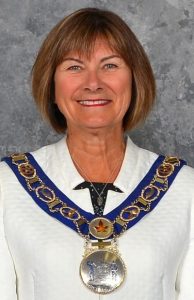
Mayor Cooper Collingwood, Incoming Cities Initiative Chair, Photo by glslcities.org
Great Lakes Now talked at length with Incoming Cities Initiative Chair, Mayor Sandra Cooper, who said, “We are mayors without borders. We live on the shoreline of shared waters. People and car parts cross the border thousands of times each day. There’s a community of common interest here. We have been at peace for over 200 years with economic prosperity between the countries. We’re colleagues. We’re working together. We’re first cousins between the Canada and U.S. Mayors. But despite that, we find ourselves battered by political rhetoric that threatens this respectful mutual and beneficial relationship we do have.”
Mayor Cooper says she wants to make it clear: “These are isolationist protectionist measures that would hurt both our countries, and The Great Lakes/St. Lawrence Region stands to lose the most. We’re speaking out to reject the rhetoric and remind people outside the region that our close-knit community, our integrated economy and our inspiring shared waters need protection from both sides of the border. “
“The water is like a ribbon that connects us all”
“We look at the Great Lakes and we know that the water that flows past my community in Georgian Bay has already gone past Duluth,” said Mayor Cooper. She said, “It’s on its way to Chicago or Detroit. The water is like a ribbon that connects all of us. When it’s threatened, we have to speak out and not turn away from it. We have to speak out about the seriousness of this threat. We are close economically and environmentally. “
Mayor Cooper tells Great Lakes Now that despite what U.S. lawmakers choose to do regarding trade tariffs, she believes U.S. and Canadian Great Lakes mayors will remain united.
And Mayor Cooper adds – if you don’t like what’s going on at the federal level – “Pick up the phone. Call your Mayor. Call your Governor! Call your representatives.”
She says, “At the conference in Ajax, we heard how much people in the U.S. appreciate Canada and how much we share as far as not only the environment and economy but arts and culture. We have to stay together, stay strong and work together to stay strong. We’re a community of common interest.”
Featured Image: Stanstead, QC / Derby Line, VT, Photo by Reubenzadeh via wikimedia cc 2.0



